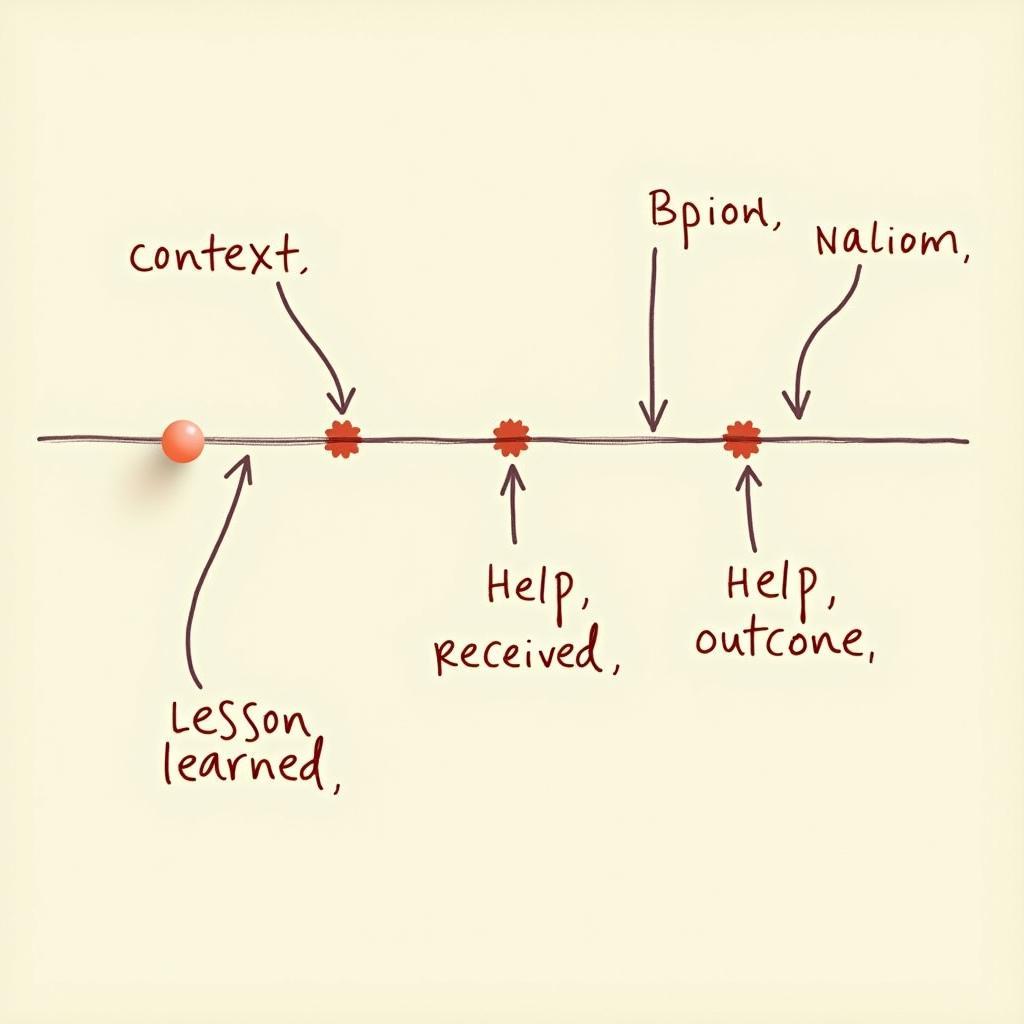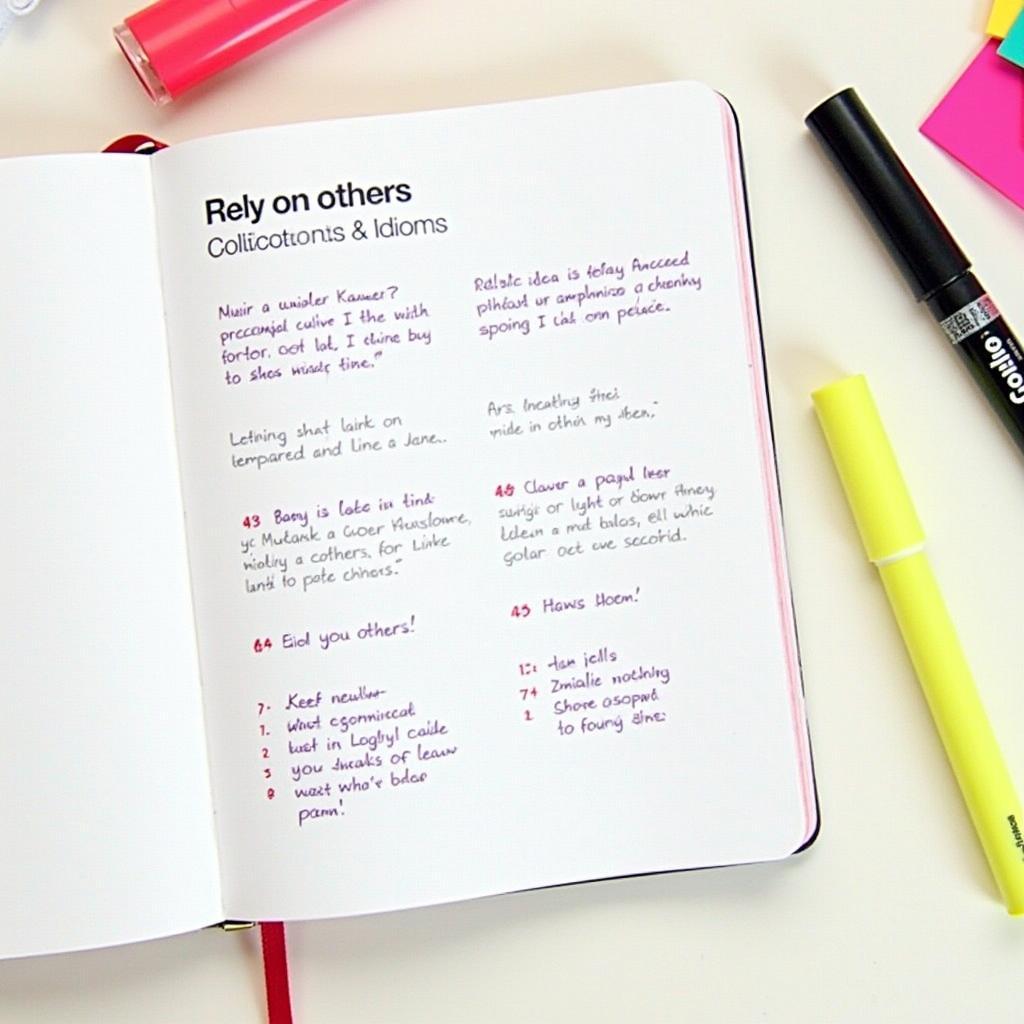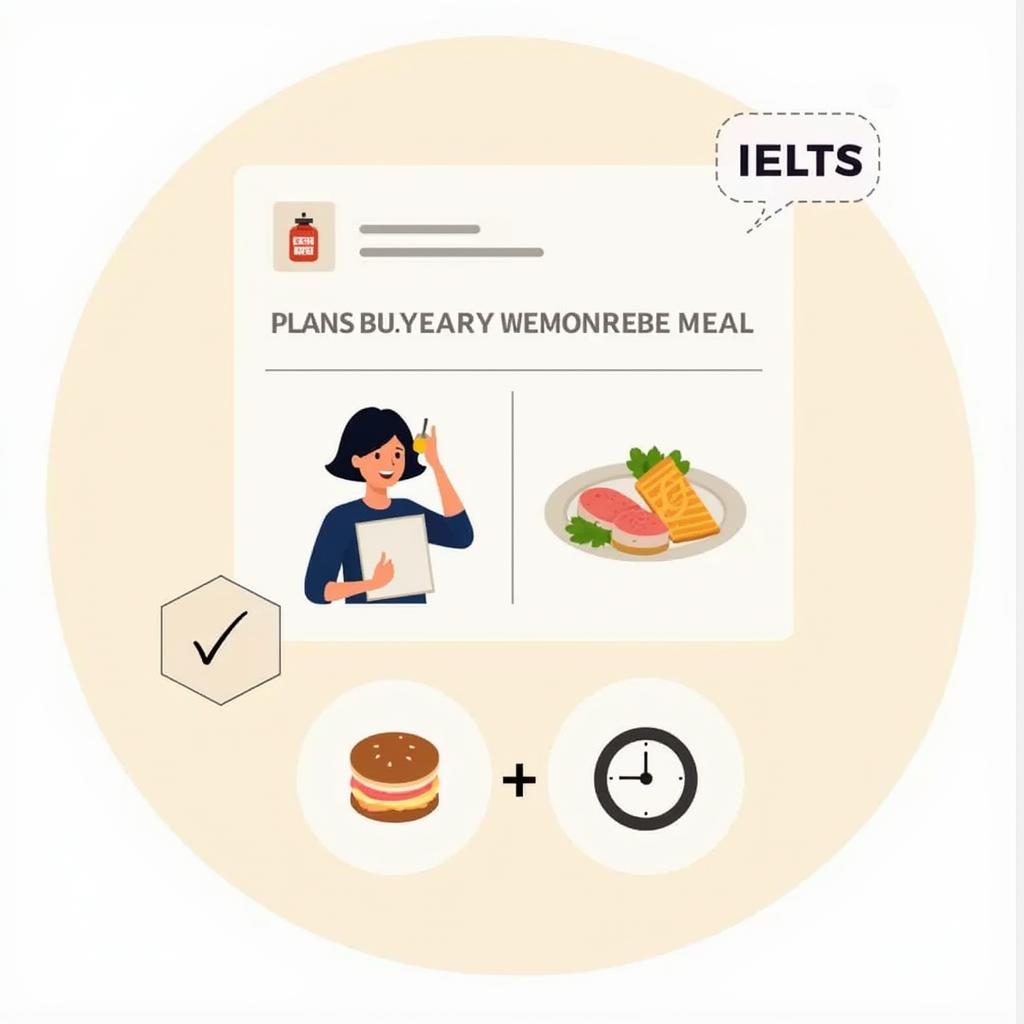Mở bài
Chủ đề Describe A Time When You Had To Rely On Others For Help thường xuất hiện trong IELTS Speaking Part 2 dưới dạng “kể một trải nghiệm cá nhân”. Đây là một chủ đề quen thuộc vì giúp giám khảo đánh giá khả năng kể chuyện mạch lạc, dùng thì quá khứ linh hoạt, và khai thác cảm xúc/quan điểm về sự phụ thuộc, hợp tác và tinh thần cộng đồng. Từ góc độ chấm thi, chủ đề này có nhiều “góc” để hỏi: vì sao bạn cần giúp đỡ, ai đã giúp, bạn học được gì, cảm xúc ra sao, và quan điểm về việc nhờ hỗ trợ trong xã hội hiện đại.
Tần suất xuất hiện: theo tổng hợp từ các nguồn luyện thi như ielts-blog.com, ieltsliz.com, IELTS-Simon và các đề thi gần đây, chủ đề rely on others/helping others đã xuất hiện thường xuyên trong giai đoạn 2021–2024, đặc biệt dưới dạng Part 2 về một trải nghiệm nhận được sự giúp đỡ, kèm Part 3 mở rộng về phụ thuộc – độc lập – công nghệ hỗ trợ. Dự đoán khả năng xuất hiện trong tương lai: Cao.
Bạn sẽ học được:
- Bộ câu hỏi thực tế cho cả 3 Part
- Bài mẫu Band 6-7, 7.5-8, và 8.5-9 kèm phân tích theo band descriptors
- Từ vựng/cụm từ ăn điểm, collocations, idioms đúng ngữ cảnh
- Chiến lược trả lời hiệu quả và cách xử lý follow-up
- Lời khuyên thực tế từ góc nhìn Examiner
 Chủ đề describe a time when you had to rely on others for help trong IELTS Speaking
Chủ đề describe a time when you had to rely on others for help trong IELTS Speaking
IELTS Speaking Part 1: Introduction and Interview
Tổng Quan Về Part 1
- Thời gian: 4-5 phút
- Đặc điểm: Câu hỏi ngắn, xoay quanh đời sống hằng ngày
- Chiến lược: Trả lời tự nhiên, trực tiếp và mở rộng 2-3 câu
- Lỗi thường gặp của học viên Việt Nam:
- Trả lời quá ngắn (Yes/No)
- Từ vựng đơn giản, lặp lại
- Thiếu ví dụ cụ thể, không giải thích lý do
Các Câu Hỏi Thường Gặp
- Question 1: Do you often ask others for help?
- Question 2: Who do you usually turn to when you need help?
- Question 3: In your culture, is it easy to ask for help?
- Question 4: Do you prefer helping others or being helped?
- Question 5: When was the last time you helped someone?
- Question 6: How do you feel when someone refuses to help you?
- Question 7: Are you good at working in a team?
- Question 8: Do you think people rely too much on others nowadays?
- Question 9: How do you usually offer help to others?
- Question 10: What kind of help do you normally need at work or school?
- Question 11: Do you plan ahead or ask for help only at the last minute?
- Question 12: Do your friends often come to you for help?
Phân Tích và Gợi Ý Trả Lời Chi Tiết
—
Question: Do you often ask others for help?
🎯 Cách tiếp cận:
- Trả lời trực tiếp
- Lý do ngắn gọn
- Ví dụ gần gũi
📝 Sample Answer – Band 6-7:
Not really. I try to be independent, but when I’m stuck with technical issues, I ask my friends because they’re more experienced than me.
Phân tích:
- Điểm mạnh: Trả lời trực tiếp, có lý do và ví dụ.
- Hạn chế: Từ vựng còn đơn giản, thiếu cụm từ nâng cao.
- Tại sao Band 6-7: Adequate development nhưng chưa đa dạng từ/cấu trúc.
📝 Sample Answer – Band 8-9:
I don’t do it often, but I’m not shy about it either. When I’m out of my depth with anything tech-related, I’ll reach out to a friend who’s savvy. It saves time and prevents me from making costly mistakes.
Phân tích:
- Điểm mạnh: Từ vựng nâng cao (tech-related, reach out, savvy, costly mistakes), nhịp điệu tự nhiên.
- Tại sao Band 8-9: Fluency tốt, từ vựng chính xác, collocations tự nhiên.
💡 Key Vocabulary & Expressions:
- reach out to someone: chủ động liên hệ nhờ giúp
- out of my depth: vượt quá khả năng
- savvy: rành, thạo
- costly mistakes: sai lầm “đắt giá”
—
Question: Who do you usually turn to when you need help?
🎯 Cách tiếp cận:
- Nói rõ đối tượng
- Lý do
- Ví dụ cụ thể
📝 Sample Answer – Band 6-7:
I usually turn to my older sister. She’s practical and gives me clear advice, especially about studying and career choices.
Phân tích:
- Điểm mạnh: Rõ ràng, hợp lý.
- Hạn chế: Chưa có cụm từ học thuật hoặc cấu trúc linh hoạt.
- Tại sao Band 6-7: Ý đầy đủ nhưng đơn giản.
📝 Sample Answer – Band 8-9:
It depends on the problem. For emotional support, I lean on my best friend; for career-related decisions, I consult a mentor who offers no-nonsense, actionable advice.
Phân tích:
- Điểm mạnh: Phân hoá theo tình huống, collocations: career-related, no-nonsense, actionable advice.
- Tại sao Band 8-9: Từ vựng chính xác, ý mạch lạc, nhấn trọng tâm.
💡 Key Vocabulary & Expressions:
- lean on: dựa vào (về mặt tinh thần)
- no-nonsense: thực tế, thẳng thắn
- actionable advice: lời khuyên áp dụng được
—
Question: How do you feel when someone refuses to help you?
🎯 Cách tiếp cận:
- Thái độ tích cực, trưởng thành
- Thừa nhận cảm xúc + lý do hợp lý
📝 Sample Answer – Band 6-7:
At first I feel disappointed, but I can understand. People are busy, so I try to solve it myself or ask someone else.
Phân tích:
- Điểm mạnh: Thái độ tích cực, mạch lạc.
- Hạn chế: Thiếu từ ngữ cảm xúc nâng cao.
- Tại sao Band 6-7: Đáp ứng yêu cầu nhưng giản dị.
📝 Sample Answer – Band 8-9:
I’m a bit disappointed, of course, but I try not to take it personally. Everyone has competing priorities, so I’ll reassess my plan, break the task down, and look for alternatives.
Phân tích:
- Điểm mạnh: competing priorities, reassess, break the task down → từ vựng/cách tư duy giải quyết vấn đề.
- Tại sao Band 8-9: Ngôn ngữ linh hoạt, logic rõ ràng.
💡 Key Vocabulary & Expressions:
- competing priorities: ưu tiên xung đột
- reassess: đánh giá lại
- alternatives: phương án thay thế
—
Question: Are you good at working in a team?
🎯 Cách tiếp cận:
- Tự đánh giá thực tế
- Ví dụ minh hoạ
- Nhấn kỹ năng
📝 Sample Answer – Band 6-7:
Yes, I think so. I listen to others and I’m willing to share tasks. In my last group project, we finished on time because we planned carefully.
Phân tích:
- Điểm mạnh: Có ví dụ, logic đơn giản.
- Hạn chế: Thiếu từ vựng chuyên sâu.
- Tại sao Band 6-7: Đủ ý, ngắn gọn.
📝 Sample Answer – Band 8-9:
I’d say I’m effective in teams. I’m comfortable delegating, giving constructive feedback, and stepping up to coordinate when needed. Those habits kept our last project on track.
Phân tích:
- Điểm mạnh: Từ vựng chuyên môn: delegating, constructive feedback, coordinate.
- Tại sao Band 8-9: Tính học thuật tự nhiên, collocations chuẩn.
💡 Key Vocabulary & Expressions:
- delegate: phân công
- constructive feedback: phản hồi mang tính xây dựng
- coordinate: điều phối
IELTS Speaking Part 2: Long Turn (Cue Card)
Tổng Quan Về Part 2
- Thời gian chuẩn bị: 1 phút (ghi keyword, không viết câu dài)
- Thời gian nói: 2 phút (ít nhất 1.5 phút, không bị ngắt)
- Đặc điểm: Kể chuyện, mô tả chi tiết, có cảm xúc, rút ra bài học
- Chiến lược:
- Ghi dàn ý theo timeline: context → problem → help → outcome → lesson
- Dùng thì quá khứ + quá khứ hoàn thành khi cần
- Mô tả cảm xúc và suy nghĩ, không chỉ sự kiện
- Lỗi thường gặp:
- Không dùng hết 1 phút chuẩn bị, thiếu mạch
- Nói dưới 1.5 phút
- Bỏ sót bullet points hoặc thiếu “explain why”
Cue Card
Describe a time when you had to rely on others for help
You should say:
- when it happened
- who you asked for help
- what you needed help with
- and explain why you had to rely on others
Phân Tích Đề Bài
- Dạng câu hỏi: Describe an experience
- Thì động từ: Quá khứ (kèm hiện tại đơn khi rút ra bài học)
- Bullet points phải cover:
- Thời điểm xảy ra
- Người đã giúp bạn
- Việc cần giúp cụ thể
- Vì sao bạn phải dựa vào người khác (phần ghi điểm: phân tích)
- Câu “explain” quan trọng: Nêu lý do sâu hơn (thiếu kỹ năng/thời gian, nguy cơ thất bại, yếu tố cảm xúc, bài học về hợp tác)
 Ghi chú Part 2 để nói về describe a time when you had to rely on others for help
Ghi chú Part 2 để nói về describe a time when you had to rely on others for help
📝 Sample Answer – Band 6-7
Thời lượng: 200-250 từ
Last semester, I had to rely on my classmate to finish a group presentation. It happened two days before our deadline when my laptop suddenly crashed and I lost some slides. I asked Minh, who is the most reliable person in our group, to help me recover the files and polish the design.
He helped me with the technical part first. He showed me how to restore a previous version of the slides from the cloud and then helped me organize the content more clearly. We also stayed after class to practice our speech so we could finish on time.
I had to rely on him because I’m not very tech-savvy, and I was really stressed about the deadline. If I had done everything alone, I might have missed the submission. Thanks to his help, our presentation went smoothly and we got a good grade. This experience taught me that it’s fine to ask for help when you truly need it, and that teamwork can save a lot of time.
Phân Tích Band Điểm
| Tiêu chí | Band | Nhận xét |
|---|---|---|
| Fluency & Coherence | 6-7 | Trình bày mạch lạc theo trình tự; có kết nối nhưng chưa phong phú. |
| Lexical Resource | 6-7 | Từ vựng đủ dùng; có vài từ như tech-savvy, restore nhưng còn cơ bản. |
| Grammatical Range & Accuracy | 6-7 | Câu đơn/ghép; lỗi nhỏ không ảnh hưởng hiểu. |
| Pronunciation | 6-7 | Dễ hiểu; cần nhấn trọng âm tốt hơn ở key words. |
Điểm mạnh:
- Có bối cảnh, vấn đề, giải pháp, kết quả, bài học
- Có một số collocations cơ bản
- Dễ theo dõi
Hạn chế:
- Thiếu từ nối đa dạng, cấu trúc câu còn đơn giản
- Chưa khai thác cảm xúc/nhận thức sâu
📝 Sample Answer – Band 7.5-8
Thời lượng: 250-280 từ
About a year ago, I had to rely on my mentor to meet a job application deadline. My portfolio was almost ready, but the layout looked cluttered and the personal statement felt flat. With only 48 hours left, I reached out to her for an urgent review.
She did two things that made all the difference. First, she streamlined the portfolio by cutting redundant pieces and highlighting my best work. Second, she helped me tighten my personal statement: we clarified my career goal, added a short anecdote, and used more active verbs so it sounded confident rather than vague.
I had to rely on her because I lacked fresh eyes after working on it for weeks. I was too close to the content to judge it objectively, and the time pressure made me second-guess every choice. In the end, the application felt sharper and more cohesive, and I got an interview. More importantly, I learned that asking for targeted help isn’t a weakness; it’s a strategic move when time and quality are at stake.
Phân Tích Band Điểm
| Tiêu chí | Band | Nhận xét |
|---|---|---|
| Fluency & Coherence | 7.5-8 | Trôi chảy, cấu trúc rõ ràng, có logic “problem → intervention → outcome → lesson”. |
| Lexical Resource | 7.5-8 | Từ vựng chính xác: streamlined, tighten, active verbs, fresh eyes, second-guess, strategic. |
| Grammatical Range & Accuracy | 7.5-8 | Câu phức linh hoạt; hầu như không lỗi. |
| Pronunciation | 7.5-8 | Nhịp điệu tự nhiên, trọng âm tốt. |
So Sánh Với Band 6-7
| Khía cạnh | Band 6-7 | Band 7.5-8 |
|---|---|---|
| Vocabulary | tech-savvy, restore | streamlined, tighten, fresh eyes, strategic |
| Grammar | Câu đơn/ghép | Câu phức, mệnh đề quan hệ, cụm danh từ |
| Ideas | Kể lại trải nghiệm | Phân tích sâu về lý do tâm lý và chiến lược |
📝 Sample Answer – Band 8.5-9
Thời lượng: 280-320 từ
Two summers ago, I found myself in a bind while preparing a public talk. The content was there, but the delivery fell flat: my pacing was uneven and my transitions were clunky. With the clock ticking, I relied on a friend who coaches debate teams to help me turn it around.
He approached it like a triage. First, he restructured my talk into three clean sections, each with a signposted transition. Then he drilled me on pausing and emphasis, marking where to breathe and which words to stress. Finally, he recorded a rehearsal so I could spot the verbal tics I wasn’t aware of—those little fillers that chip away at credibility.
I had to rely on him for two reasons. Technically, I lacked the mechanics of delivery that make a talk persuasive. Psychologically, I needed an outside perspective to short-circuit my perfectionism and focus on what the audience would actually take away. The transformation was immediate: the talk felt cohesive, the message landed, and the Q&A was lively. That experience crystallized a lesson I still live by: independence is valuable, but timely, expert help is often the difference between good and great.
Phân Tích Band Điểm
| Tiêu chí | Band | Nhận xét |
|---|---|---|
| Fluency & Coherence | 8.5-9 | Cực kỳ trôi chảy, cấu trúc logic, nhịp kể chuyện lôi cuốn. |
| Lexical Resource | 8.5-9 | Từ vựng tinh vi: triage, signposted, verbal tics, chip away at, short-circuit. |
| Grammatical Range & Accuracy | 8.5-9 | Đa dạng cấu trúc: mệnh đề quan hệ, nhấn mạnh, song song. |
| Pronunciation | 8.5-9 | Tự nhiên, nhấn nhá hiệu quả, dễ hiểu. |
Tại Sao Bài Này Xuất Sắc
- Fluency Hoàn Hảo: Liên kết mạnh, nhịp độ đều, không do dự.
- Vocabulary Tinh Vi: “short-circuit perfectionism”, “mechanics of delivery”, “timely, expert help” → chính xác, giàu hình ảnh.
- Grammar Đa Dạng: Sử dụng cấu trúc nhấn mạnh, mệnh đề quan hệ, cụm danh từ học thuật.
- Ideas Sâu Sắc: Phân tích kỹ thuật + tâm lý; rút ra “principle” mang tính khái quát.
Follow-up Questions (Rounding Off Questions)
Question 1: Do you think asking for help makes people look weak?
- Band 6-7 Answer: Not really. It shows you’re practical and want to do things better, especially when time is limited.
- Band 8-9 Answer: Not at all. In fact, asking for help can be a sign of maturity and strategic thinking, as long as you remain accountable for the result.
Question 2: What qualities make someone a good helper?
- Band 6-7 Answer: They should be patient and reliable. Clear advice also helps a lot.
- Band 8-9 Answer: Patience and clarity matter, but so do empathy and subject-matter expertise. You want guidance that’s both kind and correct.
 Sơ đồ timeline luyện Part 2 cho chủ đề rely on others
Sơ đồ timeline luyện Part 2 cho chủ đề rely on others
IELTS Speaking Part 3: Two-way Discussion
Tổng Quan Về Part 3
- Thời gian: 4-5 phút
- Đặc điểm: Câu hỏi trừu tượng, yêu cầu phân tích – so sánh – đánh giá
- Yêu cầu: Quan điểm rõ, lập luận, ví dụ xã hội
- Chiến lược:
- Trả lời 3-5 câu, có cấu trúc
- Dùng discourse markers hợp lý
- Đưa ví dụ ngoài bản thân (xã hội, công việc)
- Thừa nhận sự phức tạp, tránh tuyệt đối hóa
- Lỗi thường gặp:
- Trả lời ngắn, ít lý lẽ
- Thiếu từ vựng trừu tượng
- Không mở rộng bằng ví dụ thực tế
Các Câu Hỏi Thảo Luận Sâu
Theme 1: Social Impact
Question 1: Why do some people hesitate to ask for help?
- 🎯 Phân tích: Opinion + Cause → Social norms, pride, fear of judgment.
- Key words: stigma, self-reliance culture, vulnerability.
📝 Sample Answer – Band 6-7:
People may worry about being judged or seen as weak. In some cultures, being independent is important, so asking for help feels uncomfortable.
Phân tích:
- Structure: Opinion → reason → culture.
- Vocabulary: Adequate but basic.
- Tại sao Band 6-7: Có lập luận nhưng ngắn và từ vựng chưa sâu.
📝 Câu trả lời mẫu – Band 8-9:
Partly it’s about stigma and pride. In cultures that prize self-reliance, people equate asking for help with vulnerability. On top of that, past experiences—like being dismissed—can make them reluctant to reach out again.
Phân tích:
- Structure: Direct answer → cultural factor → psychological factor.
- Vocabulary: stigma, self-reliance, vulnerability, reluctant.
Key Language Features:
- Discourse markers: On top of that, partly, to some extent
- Tentative language: can, may, to some extent
- Abstract nouns: vulnerability, stigma, reluctance
—
Question 2: Is it better to depend on family or friends for help?
- Dạng: Compare/Opinion
- Key words: reliability, boundaries, expertise.
📝 Sample Answer – Band 6-7:
It depends. Family is reliable, but friends may give more objective advice. I think both are useful in different situations.
📝 Câu trả lời mẫu – Band 8-9:
It’s context-dependent. Family offers unconditional support, but friends sometimes provide greater objectivity. When expertise is required—say, legal or financial matters—neither group may suffice, and a professional is safer.
Phân tích:
- Structure: Nuanced view + example.
- Vocabulary: unconditional support, objectivity, professional.
Theme 2: Future Trends
Question 3: How will technology change the way people seek help?
- Dạng: Trend/Prediction
- Key words: online communities, AI assistants, privacy.
📝 Sample Answer – Band 6-7:
Technology makes it easier to ask for help online. People can get quick answers, but privacy can be a problem.
📝 Câu trả lời mẫu – Band 8-9:
Technology will democratize access to help—through forums, teleconsulting, and AI. Yet it also raises privacy and misinformation concerns, so digital literacy will be essential to separate useful advice from noise.
Phân tích:
- Vocabulary: democratize, teleconsulting, misinformation, digital literacy.
- Grammar: Parallel ideas, balance.
—
Question 4: Will online communities replace real-life support?
- Dạng: Opinion/Prediction
- Key words: complement vs. replace; depth of support.
📝 Sample Answer – Band 6-7:
I don’t think so. Online help is fast, but face-to-face support feels deeper and more personal.
📝 Câu trả lời mẫu – Band 8-9:
They’ll complement rather than replace each other. Online networks offer scale and speed, but in-person support provides emotional nuance and accountability that are hard to replicate digitally.
Theme 3: Cultural Differences
Question 5: How does culture influence people’s attitudes toward asking for help?
- Dạng: Cause/Compare
- Key words: collectivist vs. individualist.
📝 Sample Answer – Band 6-7:
In collectivist cultures, people often help each other more. In individualist cultures, independence is more important.
📝 Câu trả lời mẫu – Band 8-9:
In collectivist settings, reciprocity and community ties normalize asking for help. By contrast, individualist cultures value autonomy, so people may outsource help only when specialized expertise is needed.
—
Question 6: Are people in big cities less willing to help than those in rural areas?
- Dạng: Compare/Discuss
- Key words: anonymity, social capital.
📝 Sample Answer – Band 6-7:
Maybe. City life is busy, so people have less time. In rural areas, neighbors know each other better.
📝 Câu trả lời mẫu – Band 8-9:
Urban residents may seem less helpful because of anonymity and time pressure, but they often donate, volunteer, or support causes at scale. Rural areas may have stronger social capital for everyday help.
 Thảo luận Part 3 về văn hóa và công nghệ trong việc nhờ giúp đỡ
Thảo luận Part 3 về văn hóa và công nghệ trong việc nhờ giúp đỡ
4. Từ Vựng và Cụm Từ Quan Trọng
Topic-Specific Vocabulary
| Từ vựng/Cụm từ | Loại từ | Phiên âm | Nghĩa tiếng Việt | Ví dụ | Collocation |
|---|---|---|---|---|---|
| rely on | v | /rɪˈlaɪ ɒn/ | dựa vào | I rely on my mentor for feedback. | rely heavily on; rely primarily on |
| lean on | v | /liːn ɒn/ | dựa vào (tinh thần) | I lean on friends when I feel stressed. | lean on support; lean on colleagues |
| reach out (to) | v | /riːtʃ aʊt/ | chủ động liên hệ | I reached out to my supervisor for help. | reach out for help; reach out proactively |
| assistance | n | /əˈsɪstəns/ | sự trợ giúp | I needed technical assistance. | seek assistance; offer assistance |
| interdependence | n | /ˌɪntədɪˈpendəns/ | phụ thuộc lẫn nhau | Teams thrive on interdependence. | healthy interdependence |
| reciprocity | n | /ˌresɪˈprɒsɪti/ | tính có đi có lại | Reciprocity builds trust. | norm of reciprocity |
| delegate | v | /ˈdelɪɡeɪt/ | phân công | We delegated tasks based on strengths. | delegate effectively; delegate tasks |
| contingency | n | /kənˈtɪndʒənsi/ | phương án dự phòng | We had a contingency plan. | contingency planning |
| overwhelmed | adj | /ˌəʊvəˈwelmd/ | quá tải | I felt overwhelmed before the deadline. | feel overwhelmed; become overwhelmed |
| empathetic | adj | /ˌempəˈθetɪk/ | thấu cảm | An empathetic mentor helps a lot. | empathetic response; empathetic approach |
| actionable | adj | /ˈækʃənəbl/ | có thể áp dụng | She gave actionable advice. | actionable insights; actionable steps |
| objectivity | n | /ˌɒbdʒekˈtɪvɪti/ | tính khách quan | I needed objectivity. | maintain objectivity |
| expertise | n | /ˌekspɜːˈtiːz/ | chuyên môn | Legal expertise is essential. | domain expertise; technical expertise |
| bailout (bail sb out) | v | /ˈbeɪlaʊt/ | cứu nguy | He bailed me out at the last minute. | last-minute bailout |
| pitch in | v | /pɪtʃ ɪn/ | chung tay giúp | Everyone pitched in to finish early. | pitch in together |
| step in | v | /step ɪn/ | can thiệp, vào hỗ trợ | The manager stepped in to help. | step in quickly |
| moral support | n | /ˈmɒrəl səˈpɔːt/ | hỗ trợ tinh thần | I needed moral support. | offer moral support |
| fresh eyes | n | /freʃ aɪz/ | góc nhìn mới | I needed fresh eyes on my draft. | a pair of fresh eyes |
| second-guess | v | /ˌsekənd ˈɡes/ | nghi ngờ lại quyết định | Don’t second-guess every choice. | constantly second-guess |
| signpost | v/n | /ˈsaɪnpəʊst/ | dẫn dắt, chỉ dẫn mạch | Signpost your main points. | clear signposting |
Idiomatic Expressions & Advanced Phrases
| Cụm từ | Nghĩa | Ví dụ sử dụng | Band điểm |
|---|---|---|---|
| a shoulder to lean on | chỗ dựa tinh thần | In tough times, I needed a shoulder to lean on. | 7.5-9 |
| lend a hand | giúp đỡ | My teammates lent a hand when I fell behind. | 7.5-9 |
| at the eleventh hour | vào phút chót | He helped me at the eleventh hour. | 7.5-9 |
| in a bind | trong thế khó | I was in a bind and had to ask for help. | 7.5-9 |
| pull together | đồng lòng hợp tác | We pulled together to meet the deadline. | 7.5-9 |
| go the extra mile | nỗ lực hơn mức cần | She went the extra mile to coach me. | 7.5-9 |
| many hands make light work | đông người giúp thì nhanh | Many hands make light work in group tasks. | 7.5-9 |
| pay it forward | đáp lại bằng cách giúp người khác | I try to pay it forward now. | 7.5-9 |
| swallow your pride | nuốt tự ái để nhờ giúp | I had to swallow my pride and ask. | 7.5-9 |
| out of one’s depth | vượt quá khả năng | I was out of my depth with statistics. | 7.5-9 |
Discourse Markers (Từ Nối Ý Trong Speaking)
Để bắt đầu câu trả lời:
- Well, …
- Actually, …
- To be honest, …
- I’d say that …
Để bổ sung ý:
- On top of that, …
- What’s more, …
- Not to mention …
Để đưa ra quan điểm cân bằng:
- On the one hand, … On the other hand, …
- While it’s true that…, we also need to consider…
Để kết luận:
- All in all, …
- At the end of the day, …
Grammatical Structures Ấn Tượng
- Conditional Sentences (Câu điều kiện)
- Mixed conditional: If I hadn’t asked for help, I would be regretting it now.
- Inversion: Had I known earlier, I would have asked sooner.
- Relative Clauses (Mệnh đề quan hệ)
- Non-defining: My mentor, who has years of experience, gave me actionable advice.
- Passive Voice (Câu bị động)
- It is widely believed that asking for help can speed up learning.
- Cleft Sentences (Câu chẻ)
- What I found most helpful was the clear, step-by-step feedback.
- The thing that changed everything was timely, expert help.
 Bảng từ vựng collocations chủ đề rely on others trong Speaking
Bảng từ vựng collocations chủ đề rely on others trong Speaking
Chiến lược đạt Band cao từ góc nhìn của người chấm – Examiner
4 Tiêu Chí Chấm Điểm IELTS Speaking
- Fluency and Coherence (25%)
- Band 6-7: Trôi chảy vừa phải, còn pauses tự nhiên
- Band 8-9: Trôi chảy, liên kết ý mạnh, dấu hiệu tổ chức bài rõ
Cách cải thiện:
- Luyện nói 2 phút/đề Part 2 hằng ngày
- Ghi âm, nghe lại, xử lý filler
- Dùng discourse markers tự nhiên
- Lexical Resource (25%)
- Band 6-7: Paraphrase cơ bản, tránh lặp từ
- Band 8-9: Từ vựng linh hoạt, collocations chính xác, idiomatic
Cách cải thiện:
- Học theo chủ đề (topic clusters)
- Ghi chép collocations và ví dụ thực tế
- Tránh “nhồi” từ lạ không kiểm soát
- Grammatical Range and Accuracy (25%)
- Band 6-7: Trộn câu đơn/ghép; lỗi nhỏ
- Band 8-9: Cấu trúc đa dạng, linh hoạt, rất ít lỗi
Cách cải thiện:
- Luyện mệnh đề quan hệ, điều kiện, câu chẻ
- Tự sửa lỗi khi phát hiện (thể hiện awareness)
- Pronunciation (25%)
- Band 6-7: Rõ ràng; trọng âm chưa ổn định
- Band 8-9: Trọng âm từ/câu chuẩn; intonation hợp lý
Cách cải thiện:
- Shadowing 5-10 phút/ngày
- Tập nhấn nội dung chính, hạ giọng kết luận
Những Điều Examiner Muốn Thấy
DO – Nên làm:
- Trả lời trực tiếp trước, rồi mở rộng
- Ví dụ cụ thể, chân thực
- Thể hiện cá tính và quan điểm
- Tự tin, giao tiếp mắt, tốc độ vừa phải
- Tự sửa lỗi nhẹ khi cần
- Hỏi lại khi chưa hiểu câu hỏi
- Sử dụng từ nối và cấu trúc mạch lạc
DON’T – Không nên:
- Học thuộc câu trả lời rập khuôn
- Lạm dụng template cứng nhắc
- Trả lời Yes/No, thiếu lý do
- Nói quá nhanh/chậm, ngắt quãng dài
- Bịa thông tin khó nhất quán
- Ám ảnh lỗi ngữ pháp hơn mức cần thiết (hãy ưu tiên độ trôi chảy)
 Gợi ý từ Examiner để đạt band cao trong IELTS Speaking
Gợi ý từ Examiner để đạt band cao trong IELTS Speaking
Kết nối học tiếp
[internal_link: relevant topic]
Kết bài
Chủ đề describe a time when you had to rely on others for help là mảnh đất màu mỡ để bạn thể hiện khả năng kể chuyện, dùng từ sắc sảo và rút ra bài học cá nhân. Hãy luyện theo cấu trúc timeline, tận dụng từ vựng collocations/idioms gợi ý ở trên, và chú ý cân bằng giữa sự chân thật và tính phân tích. Với chiến lược đúng và thực hành đều đặn, bạn có thể nâng câu chuyện đời thường thành một câu trả lời giàu chiều sâu, thuyết phục và đạt band điểm cao trong IELTS Speaking test.



[…] tự như describe a time when you had to rely on others for help, những kinh nghiệm này đã giúp tôi nhận ra giá trị của sự kiên nhẫn trong […]